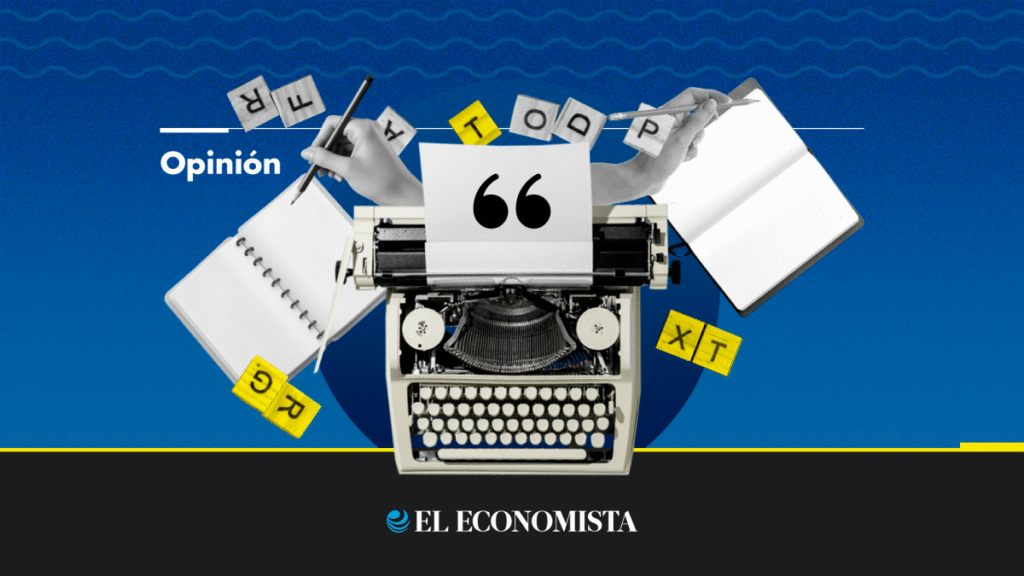Introduction
The relationship between Mexico and the United States resembles, at times, a high-intensity, deeply asymmetric marriage. Just like some long and lopsided bonds, divorce isn’t impossible but is unthinkable without careful consideration: the weight of children, shared assets, emotional and economic dependencies. This complex, interdependent dynamic explains, in part, why Mexico received an exception in the latest round of tariffs imposed by President Donald Trump.
The Importance of the Union
While the importance of this union is not reciprocal, the United States maintains diverse strategic alliances. Mexico, however, remains tied to a single relationship—its most important international agenda item. For the ruling party, the new tariff pause is a “great agreement,” one that, they claim, did not involve any new concessions.
Status Quo and Uncertainty
The reality is far more complex than the morning press briefings suggest. On one hand, the status quo remains, along with a high degree of uncertainty and costs. Mexican exports’ preferential access has eroded, now being lower for key sectors like steel, aluminum, copper, automobiles, and other products that do not meet the T-MEC rules of origin. The next 90 days prolong the impasse while the rules of the game remain undefined.
U.S. Leverage and Uncertainty
On the other hand, despite the bilateral relationship’s complexity, preventing its immediate dismantling, it is clear that the U.S. holds the upper hand. Uncertainty persisted until the last minute, with the president needing an additional phone call with Trump to announce any arrangement. This evidence suggests that, despite weeks of negotiations and cabinet visits to Mexico City, there was no certainty on the final decision from the Mexican side. The extension seems more like a calculated pause by the U.S., as they almost always have the last word across the border.
Mexico’s Position and Concessions
Those now praising Mexico’s “exceptional” treatment are actually acknowledging the union’s costs rather than diplomatic merits. President Claudia Sheinbaum appears to have learned to speak Trump’s language, as seen when she proposes a “global agreement” and aligns with his obsession to correct the bilateral trade deficit.
She has seemingly gained some consideration from Trump, at least on his good days. However, from my perspective, courtesy from authoritarian figures like Trump may conceal a subtle form of control. Mexico has been more accommodating than confrontational, making numerous concessions due to limited alternatives. An example is the tightened migration control and deliberate policy of keeping thousands of people in Mexico City to prevent them from reaching the northern border.
Outcome and Future Challenges
Mexico did not win the game; they merely reached halftime in a tense contest where confrontation’s tone has been tempered, but the conflict remains unresolved. As Trump himself noted, there are still prickly issues like non-tariff barriers to address. These will be added to the China review and T-MEC revision.
Each March, the United States Trade Representative’s (USTR) office publishes a report on trade barriers. This year’s nearly 400-page document lists dozens of obstacles in Mexico: opaque regulatory practices, investment restrictions, and systematic favoritism towards state-owned enterprises. A quick read reveals that these 90 days are not a result of Mexico’s “exceptionalism,” but an unstable truce disguised as an agreement.
Key Questions and Answers
- Q: Why did Mexico receive an exception in the U.S. tariffs? A: Mexico’s crucial role in the U.S.’s international agenda, along with their interdependent relationship, led to this exception.
- Q: What is the current status of the U.S.-Mexico trade relationship? A: The relationship remains complex, with preferential access for Mexican exports eroded in key sectors. A 90-day pause has been implemented, but uncertainty and costs persist.
- Q: How has Mexico responded to U.S. tariffs? A: Mexico has made numerous concessions, such as tightening migration control and keeping people in Mexico City to prevent border crossings.
- Q: What challenges lie ahead for the U.S.-Mexico trade relationship? A: Issues like non-tariff barriers, the China review, and T-MEC revision remain unresolved.
- Q: What does Mexico’s exception in tariffs truly signify? A: It is an unstable truce, not genuine exceptionalism, disguised as a bilateral agreement.






